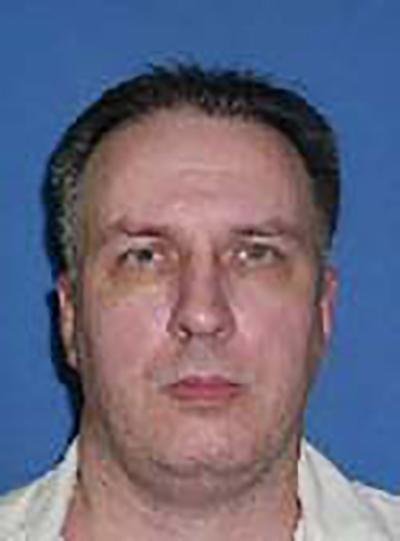Patrick Murphy, a member of the infamous Texas Seven gang converted to Buddhism over a decade ago while in jail. Photo courtesy of Texas Department of Criminal Justice
March 29 (UPI) -- The Supreme Court has delayed the execution of Patrick Murphy on the grounds of religious discrimination as his spiritual advisor was not allowed to be with him in the execution chamber.
The Supreme Court voted 7-2 on Thursday with Justices Clarence Thomas and Neil Gorsuch the sole voices against the stay of execution application.
Texas was scheduled to execute Murphy at 6 p.m. Thursday, but the last-minute stay was granted "unless the State permits Murphy's Buddhist spiritual advisor or another Buddhist reverend of the state's choosing to accompany Murphy in the execution chamber during the execution," Supreme Court Justice Brett Kavanaugh wrote in the two-page decision.
Murphy was one of the so-called Texas Seven, a group of escaped prisoners who killed a police officer in 2000.
One of two members of the Texas Seven still alive, Murphy has said he shouldn't be put to death as he wasn't actively involved in the shooting of the officer.
"My role was basically really to be the getaway driver," he said.
Murphy converted to Buddhism during his incarceration, and about a month before his scheduled execution his lawyers requested that his Buddhist priest be permitted in the execution chamber, which was denied by the Texas Department of Criminal Justice.
Lower state and federal courts denied Murphy's appeal, saying it was filed too late, an argument that Kavanaugh disagreed with, saying it was filed in a "sufficiently timely manner."
Kavanaugh said in the written decision, Texas policy allows a Christian or Muslim inmate a state-employed leader of either religion present in the execution chamber during the execution while inmates of other religious denominations, such as Buddhism, can only have their religious advisers in the viewing room.
"In my view, the Constitution prohibits such denominational discrimination," he said, adding "what the state may not do, in my view, is allow Christian or Muslim inmates but not Buddhist inmates to have a religious advisor of their religion in the execution room."
Kavanaugh said Texas had two options: either allow all inmates to have a religious advisor of their choice in the chamber or allow none to have an adviser in the chamber.
"In any event, the choice of remedy going forward is up to the state," he said.
Texas Department of Criminal Justice spokesman Jeremy Desel said Murphy would return to death row while the state reviews the ruling and figure out how to proceed, CBS News reported.
Meanwhile, Murphy's lawyers, David Dow and Jeff Newberry, celebrated the news, the Houston Chronicle reported.
"We are pleased the Supreme Court acknowledged both that Mr. Murphy, as a Buddhist, is entitled to be accompanied in the execution chamber during the execution by a minister of his own faith just as a Christian would be," they said.
His lawyers previously stated they are hoping proposed legislation to outlaw the death penalty for accomplices who weren't direct the cause of murder will provide incentive for Texas Gov. Greg Abbott to stay the execution, the Texas Tribune reported.
The Supreme Court ruled on a similar case in early February, stating that a Muslim man could be executed without the presence of his imam in the execution chamber as the inmate had waited too long to make his appeal.















